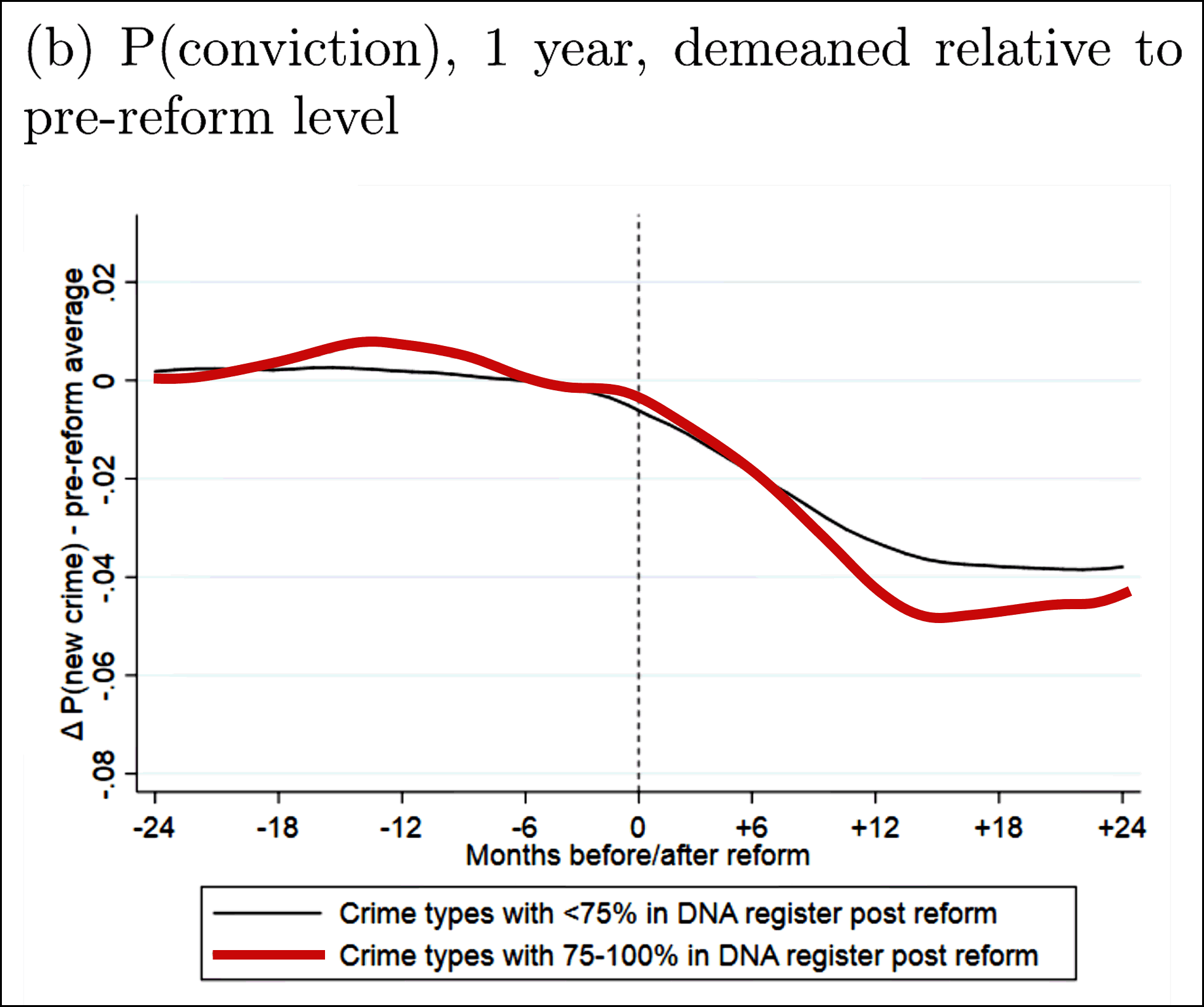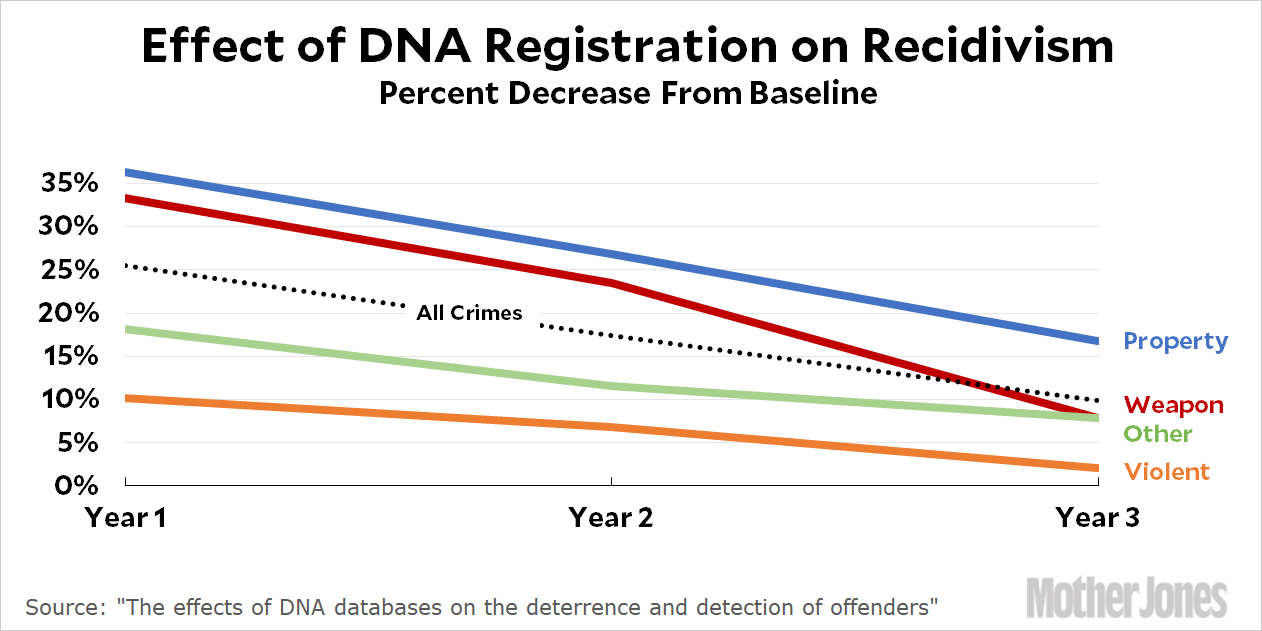A few days ago Tyler Cowen linked to a study from Denmark about the effect of a new law that adds criminal offenders to a DNA database. The abstract says that the law “reduces recidivism within the following year by as much as 43%,” which I found both impressive and a little scary. Impressive because that’s a big result. Scary because it points the way toward an ever more efficient surveillance society.
But once I plowed through the paper and finally understood all the different tables,¹ I’m a little less impressed by the power of DNA registration. First, here’s a chart showing the general approach that the authors took:

The general idea is simple: some crimes are more likely to get you into the DNA register than others. As this chart shows, after 12 months the probability of committing a new crime is lower among those who knew for sure that their DNA was now registered. Here’s a chart showing the actual reduction in recidivism for various crime types:

The most obvious result here is that the effect on recidivism is fairly high during the first year, but steadily decreases after that. By the third year, the effect on property crimes remains significant but the effect on other crimes is fairly modest, and on violent crimes has shrunk to only 2 percent. The reduction in committing any crime was about 10 percent by year three.
Now, 10 percent isn’t nothing, but it’s not huge either. I would certainly like to see studies of other countries that have done this, as well as a follow-up study in Denmark a few years from now to see if the effect lasts.
¹Thanks to co-author Anne Sofie Tegner Anker for helping me out with this.


















